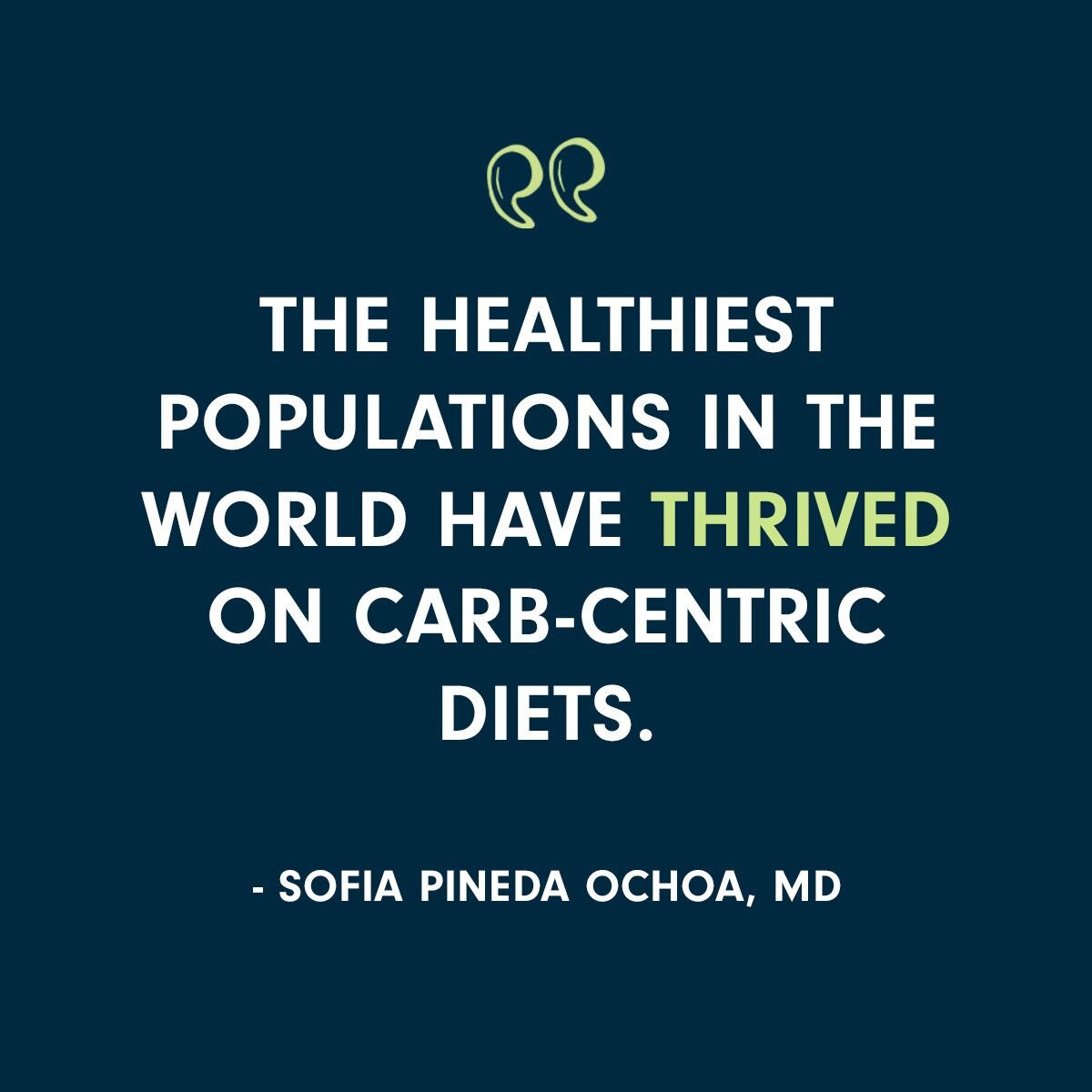Two Myths & One Truth: Are Carbs Evil Or Genius? (Diabetes Awareness Month)
My grandmother has had diabetes for decades. I remember when she was diagnosed, and being that I was still pretty young, I didn’t really understand what it meant. Something about blood sugar dropping and rising.
Several years later, my dad was also diagnosed with diabetes. Neither of them were healthy by definition, but again all I knew was something about blood sugar.
The conversation around diabetes was centered on the main enemy —> sugar. No more cakes. No more cookies. No more soda. No more carrots. No more grapes.
Wait…what?
Since when did carrots and grapes and apples and potatoes become as bad for you as cookies and cakes?
On the surface, carbs look like the bad guy ready to do some major damage to our bodies. But underneath that exterior is a different story altogether.
The story has two main characters: the liver and the pancreas. The storyline covers their big brother/little sister relationship.
It also brings up their wise grannie, the brain.
The liver is a powerhouse organ within the body that shields and protects from:
toxin overload
excess fat in the blood
…among other things.
The pancreas is a delicate flower of an organ that pumps out insulin in the body to regulate blood sugar.
Blood sugar is not the same as sugar (btw).
The amount of fat in our blood (it gets there by what we eat) affects this relationship between liver and pancreas. “The more fat hanging around in the bloodstream, organs digestive tract, and lymph fluid, the more insulin is needed to try to forces sugar through and around the fat saturation so it can enter into the cells and the body can function.” (Medical Medium Liver Rescue, pg. 16)
But wait. I thought sugar was bad?
Turns out that sugar is the fuel that our bodies PREFER. Our brain is big and it is picky. It demands sugar to perform and operate at it’s best. The liver is less picky but it demands sugar to fuel all that powerhouse protection.
Does that mean drink soda and eating cookies is back on the docket?
Of course not, that stuff is terrible for our bodies. What it means is that fruit and potatoes and other carbs are back!
Fruit fear has gripped us for far too long. November is National Diabetes Awareness Month so instead of talking about how to reduce your sugar and carb intake, I want to flip that script!
Reduce your fat intake
Increase your fruit and vegetable intake
Your body loves foods like:
Pumpkin
sweet potatoes
potatoes
squash / zucchini
berries (especially blueberries)
apples
bananas
Natural and healthy sugars are not the enemy to our body; excess fat is.
The primary sources of fat are found in animal products such as
butter
cheese
ice cream
anything dairy
bacon
pork
red meat
hotdogs (so gross)
chicken
As Americans, we eat a lot of this kind of food. More than we should. There’s even a diet designed around eating a high fat diet in order to trick your body to burn fat rather than carbs.
***remember, your body WANTS carbs to burn***
Spending more time in the produce section is the simplest way to turn the diabetes train around.
Filling our plates (breakfast, lunch, dinner) with vegs and fruits is exactly what our bodies ordered, being mindful of avocados, coconut, buts, and olives as they all have a high fat content.
There is no need to eliminate fat (your body also needs it) but it only needs a small amount (<15%) of the good kind (like from avos).
Vitamin K is also a surprise guest in this story of loving our bodies and fighting off diabetes with a broom.
Vitamin K is best known for
helping blood clot
maintaining bone density
preventing vascular calcifications
Leafy greens are excellent sources of vitamin K, but you can also add in a daily supplement.
Vitamin K and calcium are excellent to pair together as the K helps the calcium to be absorbed into the body.
RELATED: Everything Potatoes (Recipe)
I believe it is important to know where the recommendations for our health are coming from and who is funding it. Many times there is a conflict of interest.
For example, big beef and big dairy funding studies that show potatoes and fruit increase insulin resistance. Okay, but what about the aspect of fat in the diet that comes from the products they sell.
In 2012, our healthcare industry in the US was a $2,000,000,000 (yes that is trillion) dollar business. So if we are spending so much on healthcare, then why aren’t we getting healthier?
What we eat matters and if the medical industry wants to advocate for their Rx pills, then I will gladly advocate for the broccoli and the kale and the apples.
Feeling better is an inside job but it starts with whatever we find on the other end of our fork.
Peace and love to you - leave me comments below with your thoughts, or drop a question!
These are products I have and LOVE. Some of these products are affiliate links, meaning, at no additional cost to you, I get a commission if you click through and make a purchase. For more information, check out my disclaimer. Thank you for supporting!















